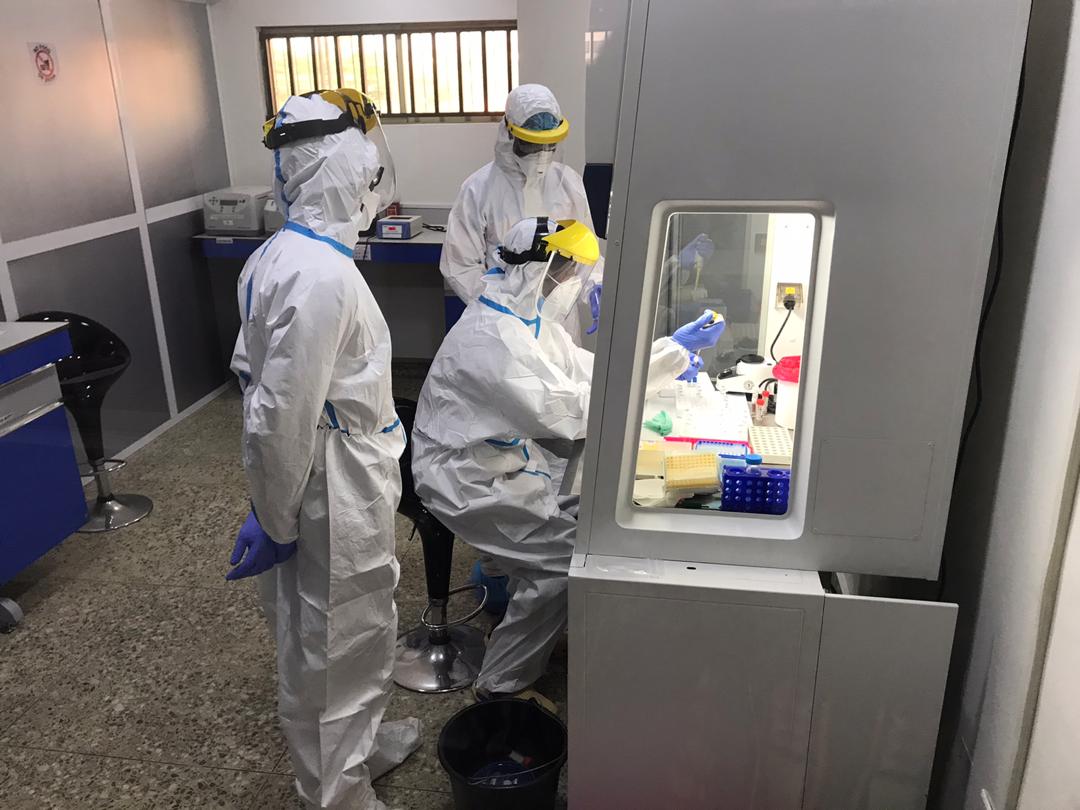Breakdown of COVID-19 protocol
The federal government had, on Monday, June 1, 2020, announced guidelines for easing Nigerians into the next phase of the lockdown that was imposed to contain the spread of COVID-19 in the country. The new phase is expected to last four weeks spanning from June 2-29, 2020. Announcing the measures, Secretary to the Government of […]

COVID-19 testing
The federal government had, on Monday, June 1, 2020, announced guidelines for easing Nigerians into the next phase of the lockdown that was imposed to contain the spread of COVID-19 in the country.
The new phase is expected to last four weeks spanning from June 2-29, 2020.
Announcing the measures, Secretary to the Government of the Federation and Chairman of the Presidential Task Force (PTF) on COVID-19, Boss Mustapha, said religious worship centres were allowed to open based on guidelines to be put in place by state governments.
He said this would apply to regular church and mosque services only.
Mustapha clarified that: “All restrictions on the movement of goods and services is now removed in this phase.
There would be full reopening of the financial sectors, with banks allowed to operate at normal working hours; five days a week.
The mass gathering of more than 20 people outside of workplaces or places of worship remains prohibited.”
Owing to the pressures mounted by some religious leaders and groups, the federal government caved in to their agitations to open up worship centres.
The PTF, however, added that the implementation of this measure shall be based on state government protocol and guidelines on physical distancing and other non-pharmaceutical interventions.
Government also responded to concerns raised by the organised private sector by relaxing restrictions on banking operations. It declared that domestic airlines would start operating from June 21, 2020.
The aviation industry is expected to develop protocol before the resumption of domestic flights in the country.
Nonetheless, the nationwide curfew period was reviewed to last from 10pm to 4am.
This is meant to limit social interactions, and therefore, reduce the risk of the transmissions of the virus.
The National Coordinator of the PTF on COVID-19, Dr Sani Aliyu, declared that the goal of Phase II partial lockdown easing measures was to balance public safety with protecting livelihoods.
The PTF employed the general public to comply with non-pharmaceutical rules including hand-washing, wearing of nose-mask, maintenance of physical distancing and the avoidance of mass gatherings.
The Task Force strongly discouraged movement between local government areas except for critical reasons such as healthcare and work.
According to the West African Health Organisation (WAHO), over 800 people have died from the disease in the sub-region from the over 46,000 infected persons.
At least, 43 percent of the deaths are in Nigeria which, so far, has recorded over 400 deaths.
This is more than fatalities recorded in 11 West African countries combined and the figures keep rising.
Yet, the easing of the lockdown was met with flagrant disobedience to the safety rules repeatedly announced by health authorities.
As Nigerians trouped to worship centres and markets, they generally flouted protective rules.
Only very few people wear nose masks on the streets, markets and in commercial vehicles.
Many Nigerians misunderstood relaxation of the lockdown rules to mean full safety cover for going out.
The situation was further worsened by some state governments that opened up other social facilities and concentration centres.
For example, Governor Abdullahi Umar Ganduje of Kano State announced the re-opening of football viewing centres across the state; arguing that such will boost economic activities in the state.
This is even as Kano is one of the three states with the highest number of confirmed cases in the country.
While government has a duty to protect lives, any additional period of lockdown could provoke negative reactions from the public.
We do not therefore advocate for a return to lockdown.
However, government at all levels needs to proactively engage in sensitisation campaigns that would inspire everyone to adhere to the protocol.
Religious leaders and business interests that circuitously pressured government to announce the current phase of response to COVID-19 should lead by example in the sensitisation campaigns.
For now, schools re-opening should be delayed further.
They should only be re-opened when the situation for doing so essentially becomes obvious.
Although it portends disaster for schools and other critical sectors of the economy to continue to remain shut, worse catastrophe awaits the country if it rushes into opening them when it is unripe to do so.
Government and individuals must take responsibility.
